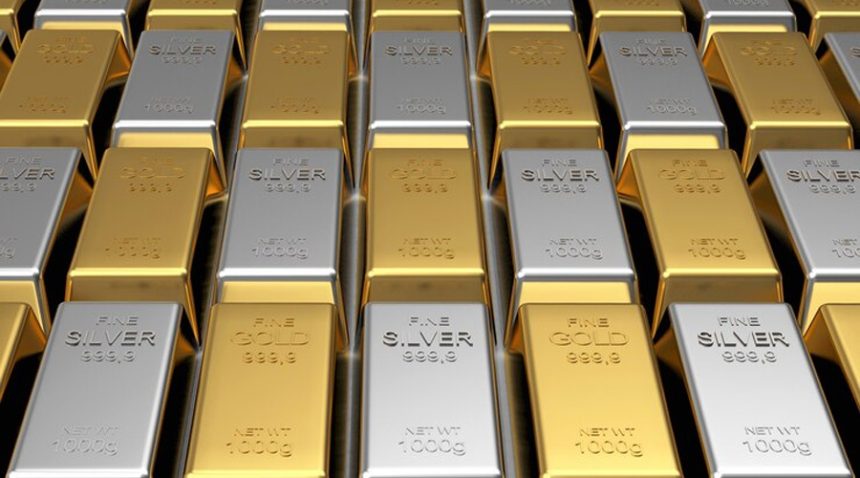Stay informed about what’s driving the silver market and gold prices in India
Gold and silver have historically been crucial components of India’s financial landscape, serving as investment assets, symbols of wealth, and cultural treasures. On November 27, 2024, the gold and silver markets in India showcased steady trends influenced by global economic factors, currency fluctuations, and domestic demand. This article provides an in-depth analysis of the latest gold and silver prices across major Indian cities and explores the factors shaping these trends.
Silver Prices in India
Silver, often considered a more affordable alternative to gold, has also seen steady price movements. As of November 27, 2024, the price of silver per kilogram in India stands at approximately Rs 72,800, reflecting minor fluctuations in the global silver market and domestic industrial demand.
Key Trends and Developments Impacting Prices
1. Global Economic Factors
Gold and silver prices are significantly influenced by global economic conditions. As of late November 2024:
Geopolitical Tensions: Continued geopolitical uncertainties in the Middle East and Eastern Europe have driven demand for safe-haven assets like gold, pushing prices upward.
Interest Rate Policies: The US Federal Reserve’s recent decision to keep interest rates unchanged has supported gold prices, as lower interest rates reduce the opportunity cost of holding non-yielding assets like gold.
US Dollar Weakness: A weakening US dollar has also contributed to higher gold and silver prices, as both metals become more affordable for holders of other currencies.
2. Domestic Demand During the Festive Season
In India, November is traditionally marked by high gold demand due to festivals like Dhanteras and Diwali, as well as the ongoing wedding season. This cultural inclination toward gold drives up prices during this period. The World Gold Council recently reported a 12% increase in gold purchases during the 2024 festive season compared to the previous year.
3. Industrial Demand for Silver
Silver’s demand has been bolstered by its industrial applications, particularly in renewable energy sectors like solar panel manufacturing and electronics. India’s expanding industrial sector has kept silver prices stable, with minor upward trends.
4. Import Costs and Exchange Rates
India imports most of its gold and silver, making prices sensitive to fluctuations in the Indian rupee against the US dollar. As of November 27, 2024, the rupee’s slight depreciation against the dollar has marginally increased gold and silver prices.
Regional Insights
North India (Delhi, Jaipur)
In Delhi and Jaipur, 22-carat gold prices reached Rs 70,950, while 24-carat gold stood at Rs 77,390. High demand during the wedding season has driven prices upward. Jaipur, a major jewelry hub, also saw increased local demand for traditional gold ornaments.
West India (Mumbai, Ahmedabad)
Gold prices in Mumbai, a key gold trading hub, were slightly lower at Rs 70,800 (22-carat) and Rs 77,240 (24-carat), reflecting minimal transportation costs. Ahmedabad’s prices mirrored Bangalore’s trends, influenced by steady urban demand and industrial use.
South India (Chennai, Bangalore, Hyderabad)
In Chennai, gold prices matched Delhi’s levels due to robust demand for traditional gold jewelry during the wedding season. Bangalore and Hyderabad reported similar prices, with Bangalore showing a marginal premium due to urban affluence and growing disposable income among residents.
East India (Kolkata)
In Kolkata, gold prices remained at par with Mumbai and Hyderabad, reflecting balanced demand and supply dynamics.
Future Outlook
Gold Prices
Gold prices are expected to remain steady or see minor fluctuations in the coming weeks due to:
Global Macroeconomic Trends: The US Federal Reserve’s policy announcements and potential geopolitical developments will play a crucial role.
Domestic Demand: As the wedding season continues, local demand is likely to sustain price levels.
Analysts predict that gold prices in India could reach Rs 80,000 (24-carat) per 10 grams by early 2025, driven by global inflationary pressures and consistent demand.
Silver Prices
Silver prices may witness moderate growth due to:
Industrial Demand: Increasing adoption in clean energy and technology sectors.
Global Economic Recovery: A stronger global economy could boost silver’s industrial use, particularly in emerging markets.
Investment Opportunities
Gold and silver continue to be attractive investment options for Indians.
Gold
Physical Gold: Jewelry, coins, and bars remain popular, though making charges and taxes slightly reduce returns.
Digital Gold: Allows easy online purchases and storage, appealing to younger investors.
Gold ETFs and Sovereign Gold Bonds (SGBs): Provide exposure to gold without the need for physical storage, often offering better liquidity and returns.
Silver
Silver Bullion: Preferred for investors looking to hold tangible assets.
Silver ETFs: Gaining popularity as an alternative to physical silver.
Industrial Stocks: Indirect exposure through companies in renewable energy or electronics sectors.
The recent trends in gold and silver prices in India reflect a mix of global and domestic factors. Rising demand during the festive and wedding seasons, combined with macroeconomic influences like geopolitical tensions and currency fluctuations, have contributed to the current price levels.
Gold remains a stable and culturally significant investment, while silver offers potential growth driven by its industrial applications. With prices expected to remain strong in the near future, both metals continue to hold their place as key components of diversified investment portfolios.
As investors navigate these trends, staying informed about market dynamics and considering various investment avenues can help maximize returns while preserving wealth.






